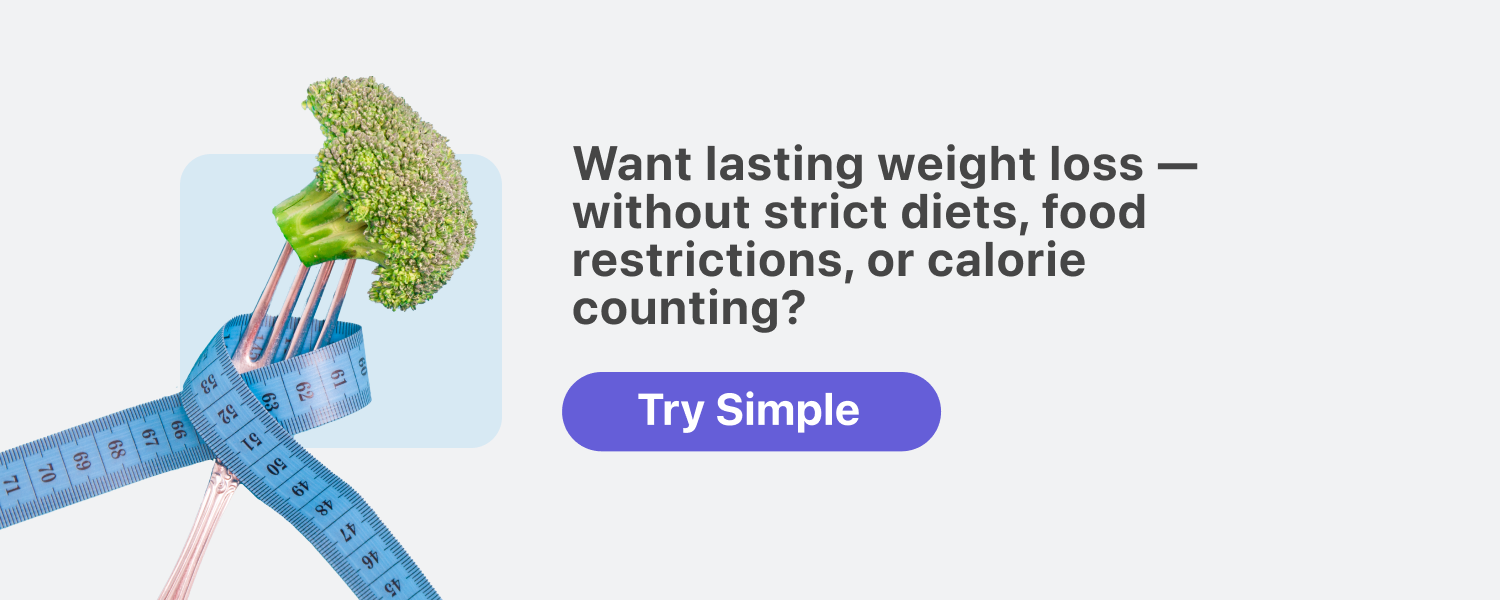Does intermittent fasting slow metabolism?

If losing body fat is your goal, slowing your metabolism is the last thing you want.
Yet that very thing tends to happen when we cut calories to lose weight. (We know, sometimes it feels like the human body is quite obnoxious, but this is actually a primal survival response that makes sure we don’t conk out in times when food is scarce.)
So now you’re wondering, does intermittent fasting slow metabolism, too?

Good news! All the research points the other way. Intermittent fasting may actually speed up and improve your metabolism.
How does it do that? What magical processes are at work here?!?!
Let us take you on a simple journey of discovery.

What exactly does metabolism mean?
Metabolism is a complex beast, but very simply put, it’s the internal chemical reactions that convert the food you eat into the energy and substances your body needs to function.
Your resting metabolic rate (RMR) — also known as your basal metabolic rate (BMR) — is the amount of energy you need to function at rest. Your body is still pretty active even when you’re not and uses calories to do things like make your heart beat, keep you breathing, power your brain, and so on.
Essentially, your RMR is the amount of calories you need to stay alive.
If you have a low RMR, you’ll use fewer calories at rest than a similar-sized person with a higher RMR who eats the same amount, and from this, we can see how metabolic rate is linked to weight management. The lower your RMR, the fewer calories you burn doing anything, and the harder it is to lose weight.
The good news is that you can speed up your metabolic rate with both what and how you eat.
Cue stage left … intermittent fasting.
How intermittent fasting affects your body at the metabolic level

When you fast intermittently, many specific metabolic changes happen.[1]
For instance, your body finds alternative ways to create energy.
When you eat, your body breaks down the carbohydrates in your food into glucose. When you fast and carbohydrates aren’t available, your body will make glucose from other non-carbohydrate sources.
This process is called gluconeogenesis, which is when your body uses glycogen reserves in your liver and water stored within your tissue to create glucose for energy.[2]
Once your glycogen stores are used up, your body turns to other things for fuel, such as your fat cells to burn ketones.
This process is called ketosis, and it’s one of the ways intermittent fasting creates adaptations in your metabolic processes. Regular calorie-counting diets can’t do this.
Intermittent fasting may increase your metabolic rate
Where calorie restriction slows your metabolism (more on this later), short-term fasting with regular refeeds may have the opposite effect.
Intermittent fasting can maintain your metabolic rate, as shown in a study where fat oxidation increased on fasting days, and RMR stayed the same.[3]
It may also increase your metabolic rate — at least in the short term — as shown in one study where metabolism was boosted 14% by intermittent fasting.[4]
Driving this effect was a hormone called norepinephrine.
One of norepinephrine’s jobs is to prevent hypoglycemia. To do so, it tells the liver to make more glucose. As we’ve just seen, this is gluconeogenesis, and it’s an energy-hungry process.[4]
Because it takes a lot of energy, gluconeogenesis raises RMR.
One of the cool things about metabolism is that, just as it responds to doing less by slowing down, it also responds to doing more — i.e., using more energy — by speeding up. (That’s why exercising is also a great way to speed up your metabolism. Just an FYI.)
Does intermittent fasting increase fat-burning hormones?
Another part of intermittent fasting’s effect on metabolism is how it upregulates (a fancy word for increases) certain hormones.
Hormones affect nearly every process in your body, including your physical growth and development, emotions and mood, sleep, stress response, and so on. They are also big players in metabolism and have a significant role in weight management. They influence your desire to eat, what you eat, how you get energy from your food, your ability to build muscle and burn fat, etc.
Intermittent fasting increases the production of some key metabolism-boosting hormones, including insulin, human growth hormone (HGH), and norepinephrine.
Insulin
Insulin is a hormone at the forefront of fat metabolism. It tells your body when to store fat and when to stop breaking it down. Studies show intermittent fasting can reduce fasting insulin levels, as well as increase your insulin sensitivity and reduce insulin resistance.[5,6]
This enhances your metabolism because when your insulin levels are regulated, your RMR increases, and your ability to burn fat improves.[7]
Human growth hormone
Human growth hormone (HGH) is critical for retaining muscle mass and promoting fat loss.
Scientists found a 24-hour fast can increase HGH production by 2,000 percent in men and 1,300 percent in women.[8] An increase in HGH can stimulate protein and carbohydrate metabolism, again helping to improve your RMR.[9] However, at Simple, we don’t recommend more restrictive fasting schedules where you eat either nothing or a limited amount of calories for 18+ hours unless you have medical supervision.
Norepinephrine
Lastly, as we’ve already seen, there’s a link between intermittent fasting and an increase in norepinephrine, a stress hormone that helps your body’s fat cells release fatty acids.[4]
Though more research is needed to confirm this, this could mean that as more norepinephrine circulates in your blood, more fat becomes available for your body to burn, which helps you lose weight more effectively.
So, does intermittent fasting actually slow your metabolism?
From everything we’ve seen so far, it looks like the idea that intermittent fasting slows down metabolism is false.
The earlier study that demonstrated a 14% uplift in metabolism was done on a 3-day fast. But, you can accomplish the same increase in norepinephrine with a milder fast.
Researchers have found that fasting for short periods, such as a 16:8 schedule, may increase your metabolism.[10] In fact, even 12-hour fasts have been shown to have a positive impact on metabolic processes and support weight loss.[11]
That’s not so scary, huh?! Why not give it a go yourself? Try our Simple quiz, and we’ll get you all set up.
Traditional diets vs. the intermittent fasting effect on metabolism

Traditional calorie-restricted diets have a profound slowing effect on metabolism.
When you eat less than you burn for a prolonged period of time, the calorie deficit you create means you lose weight.
BUT … the body then says, “You know, if we’re gonna do this low-cal thing long term, I gotta turn the engine down.”
This is called adaptive thermogenesis, and it means you burn fewer calories at rest than you did before. That makes it harder to lose weight because you now have to do more to burn the same amount of calories you used to burn doing less.
This drop in metabolic rate can be pretty long-lived, too. One study on The Biggest Loser participants showed that participants’ metabolisms were still running slower six years later,[12] and another research study found calorie restriction can decrease metabolism for good.[13]
Eek.
On the flip side, check out this study, where a small group of men and women practiced intermittent fasting for over a year.[14] Results showed that fasting did not produce adaptive thermogenesis, and the participants’ metabolic rate was 10% higher at the end of that year than predicted.
Intermittent fasting works differently for two reasons.
- Intermittent fasting is not a constant calorie restriction but rather an alternation between fasting and eating “normally” (whatever normal is for you).
For instance, with intermittent fasting 16:8, you would normally for eight hours of each day — no calorie-counting required. This 8-hour eating window can happen whenever works best for you. The rest of the time (including overnight when you’re sleeping!) you’re fasting.
- Intermittent fasting preserves more muscle.
From the research, it seems we lose less muscle when losing weight with intermittent fasting than with traditional dieting.
More muscle means a higher RMR because the more muscle we have, the more calories we burn for every activity we do.
Intermittent fasting and strength training make a great partnership.[15] Maybe it’s time to dust off that barbell / kettlebell / bodyweight circuit / [insert your favorite style of strength workout here]?

Is it OK to skip meals?
Yes, it is. So long as that works for you.
If you practice 16:8 intermittent fasting, you’ll probably either skip breakfast or dinner. There’s no problem there.
The key is to eat enough for your needs so you have enough energy to live your life, and your body gets all the nutrients it requires.
You can do that with 1 meal a day or 6+ meals a day — lots of meal structures have been shown to work. Whatever fits your lifestyle — and your chosen intermittent fasting schedule — best is just fine and dandy.
Why do people gain weight even while fasting?
There are a few reasons someone might gain weight while fasting.
First, it can be easy to overeat after a fast, especially when you’re new to it.
Eating windows can become overeating windows simply due to not being super skilled at managing your hunger and/or breaking your fast in a healthy way.
Both of these things can be improved over time.
Second, intermittent fasting isn’t a silver bullet for obliterating sketchy eating habits. We might fast like a champion and yet still have ice cream in our coffee and deep-dish pizza for breakfast on a stressful day.
When it’s time to eat, work on making food choices that are nourishing, give you good energy, and support your health. We’ve got some solid advice for what to eat during intermittent fasting — check it out if you could use some pointers.
And, if you’re new to intermittent fasting, we can help you avoid some of these intermittent fasting mistakes (we all make ‘em).
Is intermittent fasting for you?

First things first:
For some, fasting is not a great choice. Don’t take up intermittent fasting — unless you have your doctor’s express permission and support — if you:
- have (or are at risk of having) an eating disorder or have a history of one
- take medications (especially those that affect blood glucose or blood pressure levels)
- have a Body Mass Index (BMI) in the “underweight” category (i.e., <18.5)
- are pregnant, breastfeeding, or trying to conceive
- are under 18 or 80 years old or older
- have a health condition, like diabetes or anemia
- are extremely active
Even if you don’t identify with any of these categories, it’s always a good idea to check in with your healthcare team before making any significant changes to your eating habits or lifestyle.
One more very important note upfront: at Simple, we don’t recommend fasting schedules where you eat nothing or a limited amount of calories for 18+ hours — especially if you’re planning to fast daily or several times a week. These schedules involve more potential risks and safety concerns, and there isn’t really any evidence to suggest they’re more effective than less restrictive approaches.
OK, now we’ve covered that: if you’re clear to give it a go and you’re ready to pump up your metabolism as we’ve described, all you need to do now is choose your schedule!
(Not sure which one to choose? Take our Simple quiz, and we can help you figure out the best plan for your unique body, preferences, and lifestyle.)
Time-restricted eating (TRE)
Time-restricted eating means fasting for a period of time and eating within the time that’s left every day.
With 16:8 intermittent fasting, for example, you’d fast for 16 hours and eat within an 8-hour window. With 14:10, you fast for 14 hours and eat within a 10-hour window. With 12:12 … well, you get the picture.
TRE is a simple, accessible option, so if you’re just starting out, we’d recommend you start here (and have a read of our intermittent fasting for beginners guide to get you feeling comfortable and confident as you do).
The Warrior Diet
The Warrior Diet (a version of 20:4 intermittent fasting) is also in the TRE family. It’s a 20-hour fast with a 4-hour eating window.
With a 20-hour fast, the hunger can be heavy and insistent, and it takes practice and skills to be able to squeeze all the nutrients you need into a 4-hour window. That’s why this is a schedule we don’t recommend unless you’ve got that medical seal of approval.
Alternate-day fasting (ADF)
With alternate-day fasting, on day one you fast. Day two, you eat. Day three, you fast. And so on. You can also do a modified fast on the fasting days and eat 500/600 calories.
Either way, that’s still a lot of fasting and a lot of restrictions to manage — which means it’s another fasting schedule we don’t recommend without the healthcare team green light.
The 5:2 diet
The 5:2 diet is a modified fast of eating only 500/600 calories for two days and eating as you normally do on the other five days. Even two days per week of such restrictive fasting can put your health and well-being at risk, so we still don’t recommend this schedule unless you’ve cleared it with your doctor.
If you’ve ever wondered “Will intermittent fasting slow down my metabolism?” let us set your mind at rest.
All the research points to no. If that clears a mental block for you and you’re ready to try intermittent fasting, why not get started today? Take our quiz, and we’ll help you get the ball rolling!
Quite the contrary: Not only does 16:8 fasting not slow your metabolism, but it may actually increase it for a short while![10]
Fat loss vs. weight loss are two different things. Weight loss is when you reduce your overall body weight, and fat loss is when you reduce your body fat percentage. When you lose fat, you’ll often lose weight at the same time, but not always! Intermittent fasting can help with both.

- Patterson RE, Sears DD. Metabolic Effects of Intermittent Fasting. Annu Rev Nutr. 2017 Aug 21;37:371–93.
- Tornheim K. Glucose Metabolism and Hormonal Regulation. In: Encyclopedia of Endocrine Diseases. Elsevier; 2018. p. 87–94.
- Heilbronn LK, Smith SR, Martin CK, Anton SD, Ravussin E. Alternate-day fasting in nonobese subjects: effects on body weight, body composition, and energy metabolism. Am J Clin Nutr. 2005 Jan;81(1):69–73.
- Zauner C, Schneeweiss B, Kranz A, Madl C, Ratheiser K, Kramer L, et al. Resting energy expenditure in short-term starvation is increased as a result of an increase in serum norepinephrine. Am J Clin Nutr. 2000 Jun;71(6):1511–5.
- Barnosky AR, Hoddy KK, Unterman TG, Varady KA. Intermittent fasting vs daily calorie restriction for type 2 diabetes prevention: a review of human findings. Transl Res. 2014 Oct;164(4):302–11.
- Gabel K, Kroeger CM, Trepanowski JF, Hoddy KK, Cienfuegos S, Kalam F, et al. Differential Effects of Alternate-Day Fasting Versus Daily Calorie Restriction on Insulin Resistance. Obesity . 2019 Sep;27(9):1443–50.
- Cho Y, Hong N, Kim KW, Cho SJ, Lee M, Lee YH, et al. The Effectiveness of Intermittent Fasting to Reduce Body Mass Index and Glucose Metabolism: A Systematic Review and Meta-Analysis. J Clin Med Res [Internet]. 2019 Oct 9;8(10).
- Intermountain Medical Center. Routine periodic fasting is good for your health, and your heart, study suggests. Science Daily [Internet]. 2011 May 20.
- Colorado State University. Growth hormone (somatotropin). VIVO Pathophysiology. [Internet].
- Webber J, Macdonald IA. The cardiovascular, metabolic and hormonal changes accompanying acute starvation in men and women. Br J Nutr. 1994 Mar;71(3):437–47.
- Lessan N, Ali T. Energy Metabolism and Intermittent Fasting: The Ramadan Perspective. Nutrients [Internet]. 2019 May 27;11(5).
- Fothergill E, Guo J, Howard L, Kerns JC, Knuth ND, Brychta R, et al. Persistent metabolic adaptation 6 years after “The Biggest Loser” competition. Obesity . 2016 Aug;24(8):1612–9.
- Barrows K, Snook JT. Effect of a high-protein, very-low-calorie diet on resting metabolism, thyroid hormones, and energy expenditure of obese middle-aged women. Am J Clin Nutr. 1987 Feb;45(2):391–8.
- Astorino T, Baker J. The Impact of Intermittent Fasting and Exercise on Resting Metabolic Rate and Respiratory Quotient. Journal of Exercise Physiology. 2019 Dec;22–9.
- Keenan S, Cooke MB, Belski R. The Effects of Intermittent Fasting Combined with Resistance Training on Lean Body Mass: A Systematic Review of Human Studies. Nutrients [Internet]. 2020 Aug 6;12(8).
